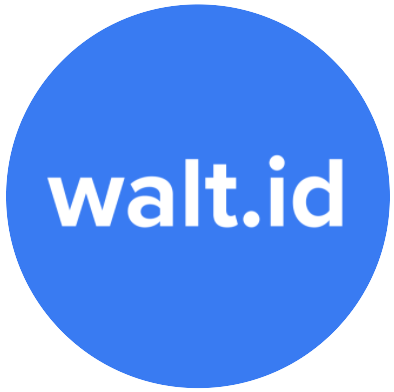Walt.id goes Multi-Platform
We are proud to announce that from today, you can build decentralized identity solutions natively in more languages, beginning with our new SD-JWT library for Kotlin, Java, and JavaScript. This library facilitates the creation of SD-JWTs across platforms, and it's just the start.
Our goal is to make our entire product suite multi-platform compatible, simplifying identity and wallet solution launches across ecosystems, identity flavors, and languages. This new direction not only offers you greater freedom, but also enables the creation of previously unfeasible solutions, like full non-custodial wallets for mobile or desktop.
The Developers’ Dilemma (why we go Multi-Platform)
Most disruptive technologies, before widespread adoption, share a common trait: their usage is challenging. This issue stems from the lack of developed infrastructure and user-friendly tools in the early stages. Examples include the early web, initial mobile phones, and now decentralized identity and web3.
Offering holistic tools that help developers build and launch versatile decentralized identity solutions with ease has been our goal from the beginning.
Our current stack is highly flexible. It's capable of interfacing with different ecosystems and identity flavors. Additionally, it offers regulatory compliance and is compatible with web2. However, there is still room for improvement and expansion. Given our strong commitment to providing an exceptional Developer Experience (DX) and user-friendliness, we now want to take it one step further with our multi-platform change, enabling:
Easier Building Processes: Letting developers build solutions in their preferred language, thereby enhancing productivity.
New Feature-Building Possibilities: Enabling solutions like non-custodial wallets, which provides greater control and security to users.
Starting with SD-JWTs, now working natively in Kotlin, Java, and JavaScript. Our goal is to offer the complete functionality of the SSI Kit, along with our other products, in these languages, while progressively incorporating additional languages like Rust, Go, and more. This multi-platform change is our answer to the Developers' Dilemma, to have a toolset that is easy to use, flexible, extensible, compliant and that works across languages.
What is the Multi-Platform Lib?
A library that lets you use our identity and wallet solutions, starting with SD-JWTs, across platforms. In the beginning we will offer support for Kotlin, Java and JavaScript, while we plan to add further platforms down the line.
Here’s the most important things to know about the Multi-Platform Lib:
It is open source (Apache 2) so that anyone can use the code for free and without limitations.
It is flexible and extensible, allowing you to add, improve functionality and platforms on your own. This openness prevents lock-in and allows you to build solutions that meet your individual requirements without compromise.
How does it work?
Kotlin Multiplatform (KMP) enables us to share and reuse code across platforms (like Android, Java, JavaScript, etc.). We write common code in a 'shared' module, containing core logic and data models, while using platform-specific APIs where needed. KMP helps us hold a maintainable, consistent, and efficient unified codebase, while minimizing code duplication and error potential. And following our modular architecture approach and the option to extend, you can come and build your own platform extension or functionality addition with ease.
Get in touch!
GitHub - how to use the multi-platform lib in your project.
Open Questions?
Contact us or join us on Discord, we are happy to help.

